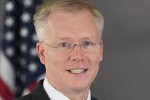Acting SEC Chair Advocating for Looser Accredited Investor Definition

At the annual SEC Speaks conference held in Washington D.C. on Friday, Michael Piwowar, the acting chairman of the Securities and Exchange Commission, argued that the current definition of accredited investor is an “artificial distinction” in desperate need of overhaul.
With respect to unregistered private investment offerings, all accredited investors must have an individual income of $200,000, a joint income of $300,000, or a net worth that exceeds $1 million – not including a primary residence.
In a “forgotten investor” themed speech, Piwowar argued that non-accredited investors who do not meet the current thresholds are being punished from reaping the same rewards and portfolio diversification benefits as those on the higher end of the income spectrum.
“Distinguishing investors who can fend for themselves from those who cannot is a line-drawing exercise fraught with peril,” said Piwowar. “The Commission did just that in 1982 when it adopted Regulation D, dividing the world of private offering investors into two categories: those persons accorded the privileged status of “accredited investor” and those who are not.”
Because riskier investments often result in higher returns, Piwowar believes that excluding non-accredited investors from these securities prevents them from realizing the same returns afforded to the wealthy.
He also argued that adding riskier investments to an existing portfolio can aid in diversification and may allow investors to realize higher returns while mitigating risk.
Piwowar questioned whether the regulation – however well-intentioned – is putting non-accredited investors at a serious disadvantage and exacerbating the inequalities of wealth and opportunity.
“In my view, there is a glaring need to move beyond the artificial distinction between ‘accredited’ and ‘non-accredited’ investors,” he said. “I question the notion that non-accredited investors are truly protected by regulations that prevent them from investing in high-risk, high-return securities available only to the Davos jet-set.”
Before stepping down from the agency, former SEC chair Mary Jo White directed her staff to recommend revising the accredited investor definition to allow individuals to qualify based on other measures of sophistication.
In February 2016, The House of Representatives overwhelmingly passed a bipartisan bill directing the SEC to expand its definition of an accredited investor under Regulation D rules, allowing those with professional knowledge relating to a particular investment to participate in private placements if qualified based on education history or job experience.